Reiner Holzemer’s New Documentary “AKRIS – Fashion With a Heritage” Offers an Intimate Look at the Quietly Influential Luxury Brand
By Kenneth Richard
Fashion documentaries frequently revel in spectacle—lavish runway shows, dramatic deadlines, and larger-than-life personalities. In contrast, Reiner Holzemer’s latest film, AKRIS – Fashion With a Heritage, premiering at the 24th Tribeca Festival, gracefully diverges from this familiar narrative. Following our recent conversation, it’s clear Holzemer remains committed to exploring fashion’s quieter, more introspective aspects.
Holzemer, known for his intimate portraits of fashion legends such as Dries Van Noten and Martin Margiela, whose acclaimed documentary Martin Margiela: In His Own Words was named the best fashion documentary of the decade by The Hollywood Reporter, recently spoke with me about his latest project and shifting his thoughtful lens onto the discreet brilliance of Albert Kriemler, creative director of the Swiss luxury house Akris.
Over the course of two years, Holzemer was granted unprecedented access to Albert and his brother, Peter, the CEO, marking the first time in four decades that cameras were permitted inside the family-run atelier. The result is a deeply personal narrative, filmed in fashion capitals like Paris, New York, Tokyo, Milan, Zurich, and notably, St. Gallen, the quiet Swiss town that remains Akris’s spiritual heart.
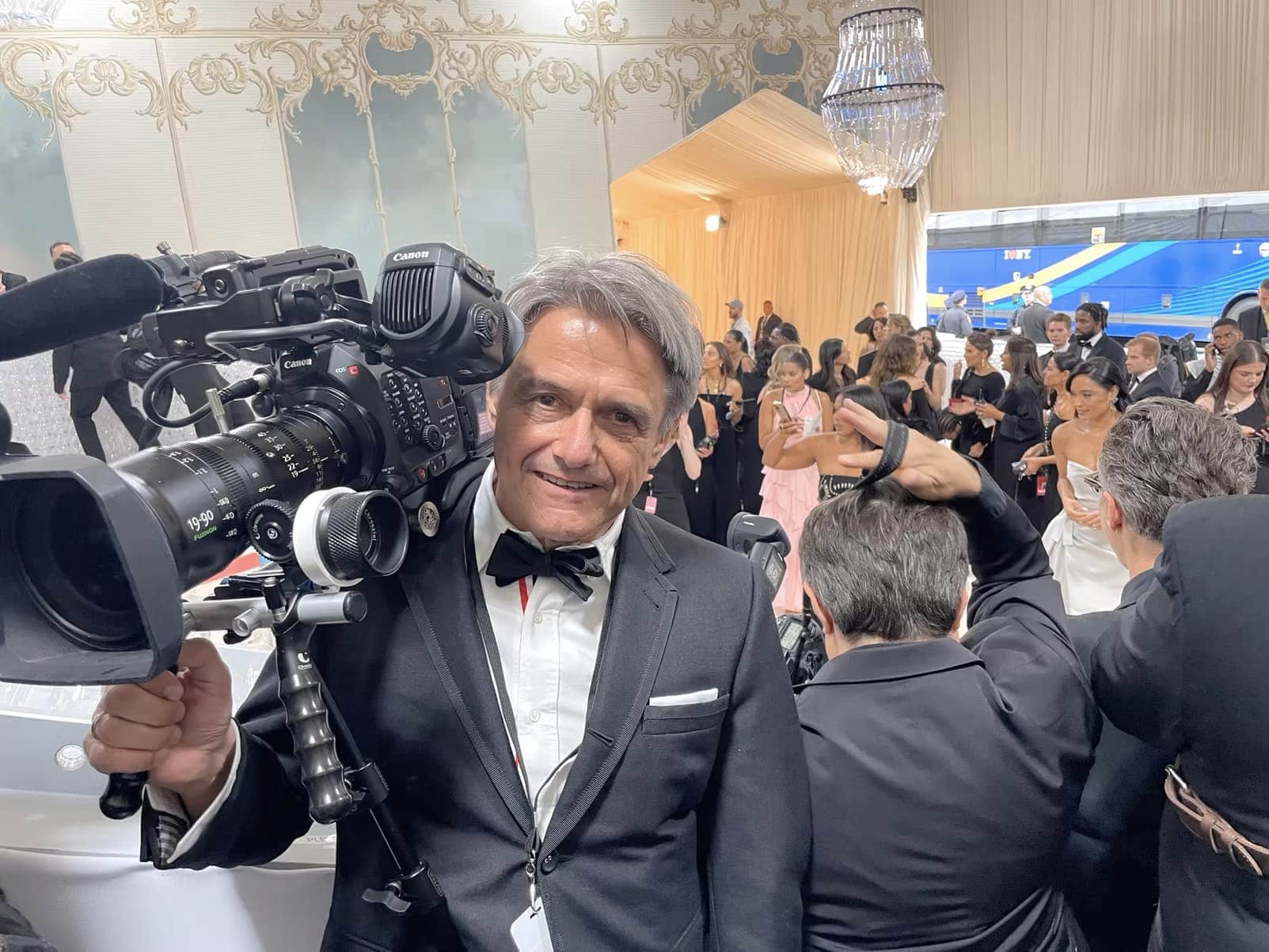
Holzemer’s filmmaking style—gentle, unobtrusive, yet emotionally potent—allows viewers rare proximity to Kriemler’s meticulous creative process.
It is this understated approach that invites an authentic exploration of craftsmanship, collaboration, and heritage, with artful clarity and sensitivity.
“I had prejudices against the fashion world,” Holzemer admits candidly. “I thought it was all steam, lights, action, a lot of blah, blah, and nothing substantial. And then I met Dries. It was one of the most profound encounters in my life. Albert shares this same genuine depth, creativity, and humility.”
Indeed, Akris operates quietly, successfully, and independently, something increasingly rare in the fashion industry dominated by conglomerates. The brand, celebrating its 100-year anniversary, was founded by Alice Kriemler-Schoch—a visionary woman from humble beginnings who entered a traditionally male-dominated industry. The film sensitively navigates the remarkable history of the company, from Alice’s entrepreneurial courage through Albert and Peter’s father, who propelled the brand’s growth, eventually positioning it to succeed internationally, where Albert propels the narrative by showing collections in Paris and developing relationships with American retailers such as Bergdorf Goodman.
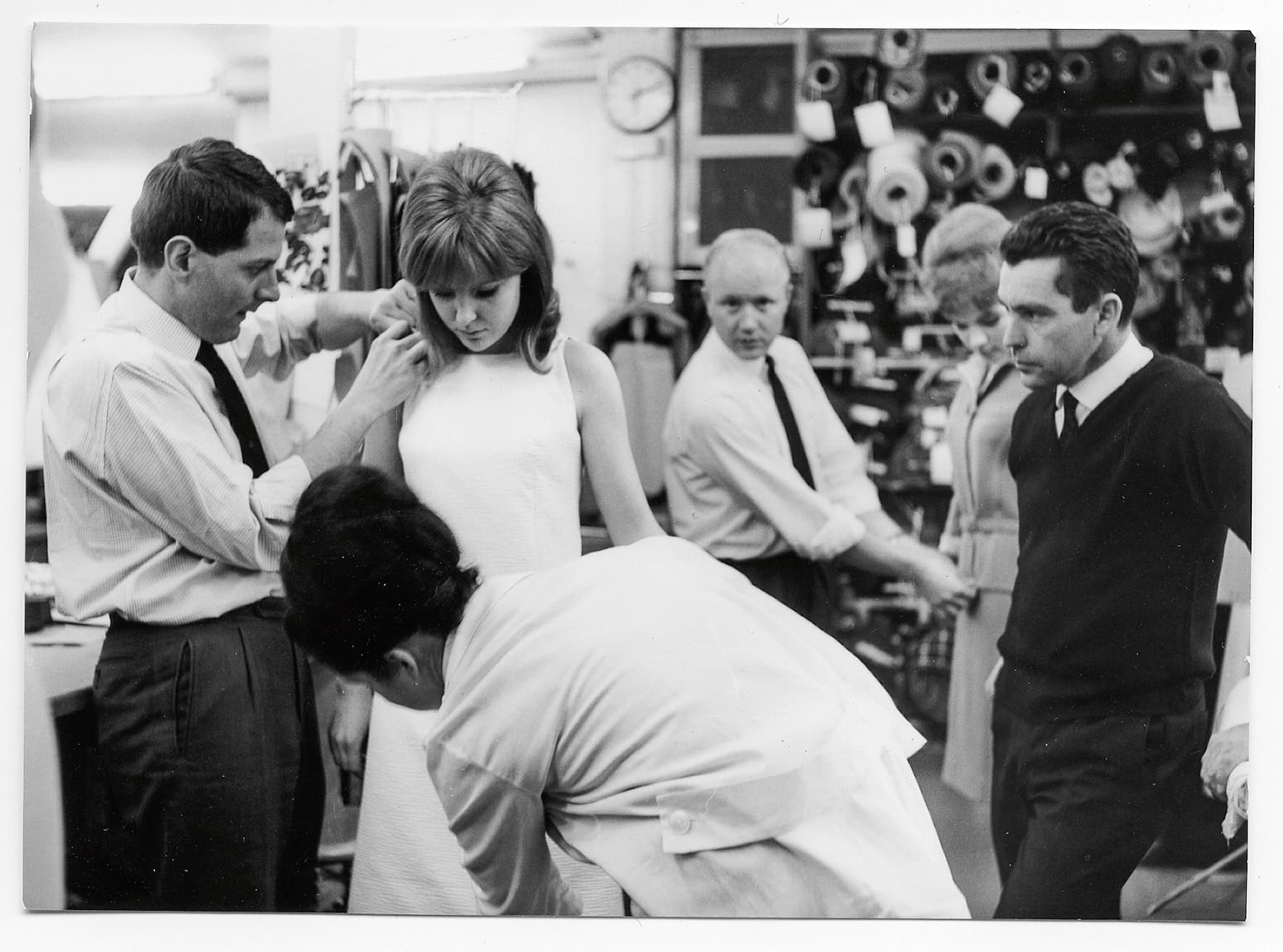
Holzemer captures the essence of this legacy poignantly, spotlighting the profound emotional bonds within the company. Particularly moving are scenes from an exhibition in Zurich celebrating the brand’s centenary. Here, long-term employees, visibly moved and deeply respected, gathered around Albert, eager to commemorate their shared journey. Holzemer recalls the significance of this moment vividly: “Peter said this was the most important event within the centenary celebration—honoring those who’ve given decades to Akris.”
Such authenticity is a hallmark of Holzemer’s work. He films solo, camera perched on his shoulder, drawing subjects into intimate conversation rather than performing for an audience. “This exclusivity allows real insight,” Holzemer says. “The people speak directly to the viewers, not to a camera. It’s the key to honesty.”
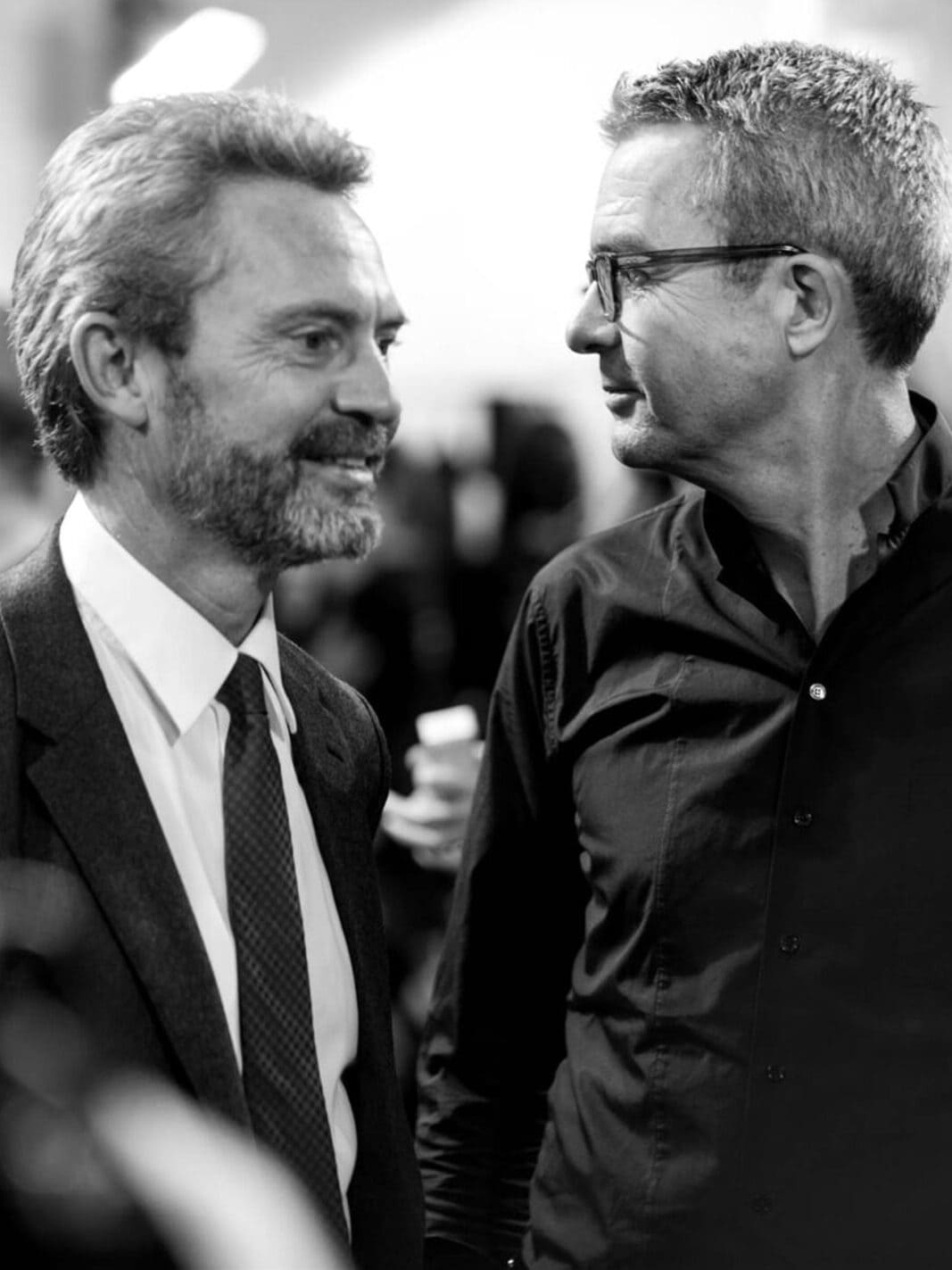
Holzemer’s film reveals Albert and Peter not just as stewards of the Akris brand, but as morally grounded leaders profoundly committed to their teams. Albert, often described as quiet and reflective, emerges as a figure deeply concerned with his employees’ well-being and success. This moral compass extends throughout the company culture, creating an atmosphere of mutual respect and dedication. Employees at Akris are not simply workers; they are integral members of an extended family, each valued and nurtured by the leadership.
This genuine care is palpably reflected in numerous poignant moments in the film, such as when Albert finds himself emotionally moved, unable to finish his speech due to the deep gratitude and affection he feels for his staff. These authentic emotional displays highlight the genuine relationships Albert and Peter foster with their team, reinforcing the community and familial ethos that define Akris.
An additional layer of Albert’s creative approach illuminated by Holzemer’s film is his deeply cerebral collaboration with artists and architects. Albert has partnered with notable artists such as Thomas Ruff, Sou Fujimoto, Imi Knoebel, Geta Brătescu, Carmen Herrera, and Reinhard Voigt. The documentary allows these thoughtful collaborations to unfold slowly, highlighting the intellectual exchange and mutual inspiration.
Albert’s cerebral quality is given ample space to resonate in this intimate cinematic setting, allowing viewers to appreciate his nuanced thinking beyond the swift pacing of runway presentations.
The documentary thoughtfully unpacks these artistic partnerships, allowing viewers to linger on the dialogues between disciplines. Holzemer notes, “Albert doesn’t articulate his vision with cinematic drama before a show. The documentary allows the viewer the luxury of understanding his intellectual depth.”
Another revealing moment in the film was Holzemer’s visit to Première Vision in Milan, the premier fabric marketplace, showcasing Kriemler’s decisiveness and creative certainty. For Holzemer, it was yet another surprise: “I’d never been there before. Witnessing Albert’s swift decision-making was fascinating—he knew exactly what he wanted.”
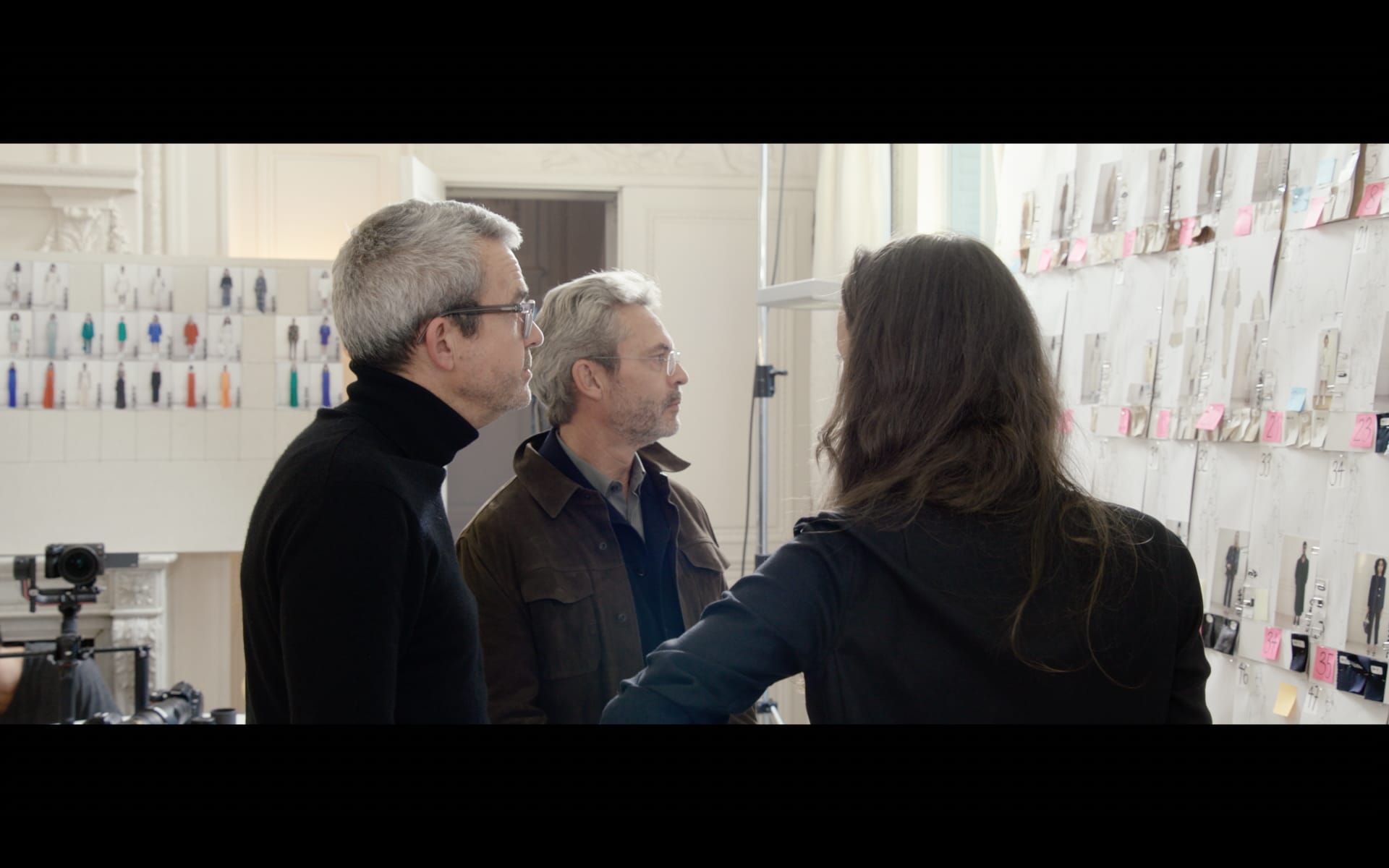
Though Kriemler’s creative process shares commonalities with other designers Holzemer has profiled, notably Van Noten, there is a critical distinction: partnership. Peter Kriemler’s steadfast support, handling business while Albert designs, is a dynamic Holzemer deeply appreciates. “When I first saw them, I felt envious. Having someone who allows you to focus solely on creativity is incredibly rare,” Holzemer observes.
This balanced partnership contributes significantly to Akris’s endurance as an independent luxury house, navigating a rapidly consolidating industry. “They succeed precisely because they stay true to their heritage and maintain personal connections,” Holzemer asserts.
Holzemer also emphasizes how deeply the Kriemler brothers value controlling their production processes. This control ensures a quality that meets their exacting standards and preserves the brand’s integrity. It also allows them to support local craftsmanship, particularly in Switzerland, a commitment becoming increasingly rare in globalized luxury.
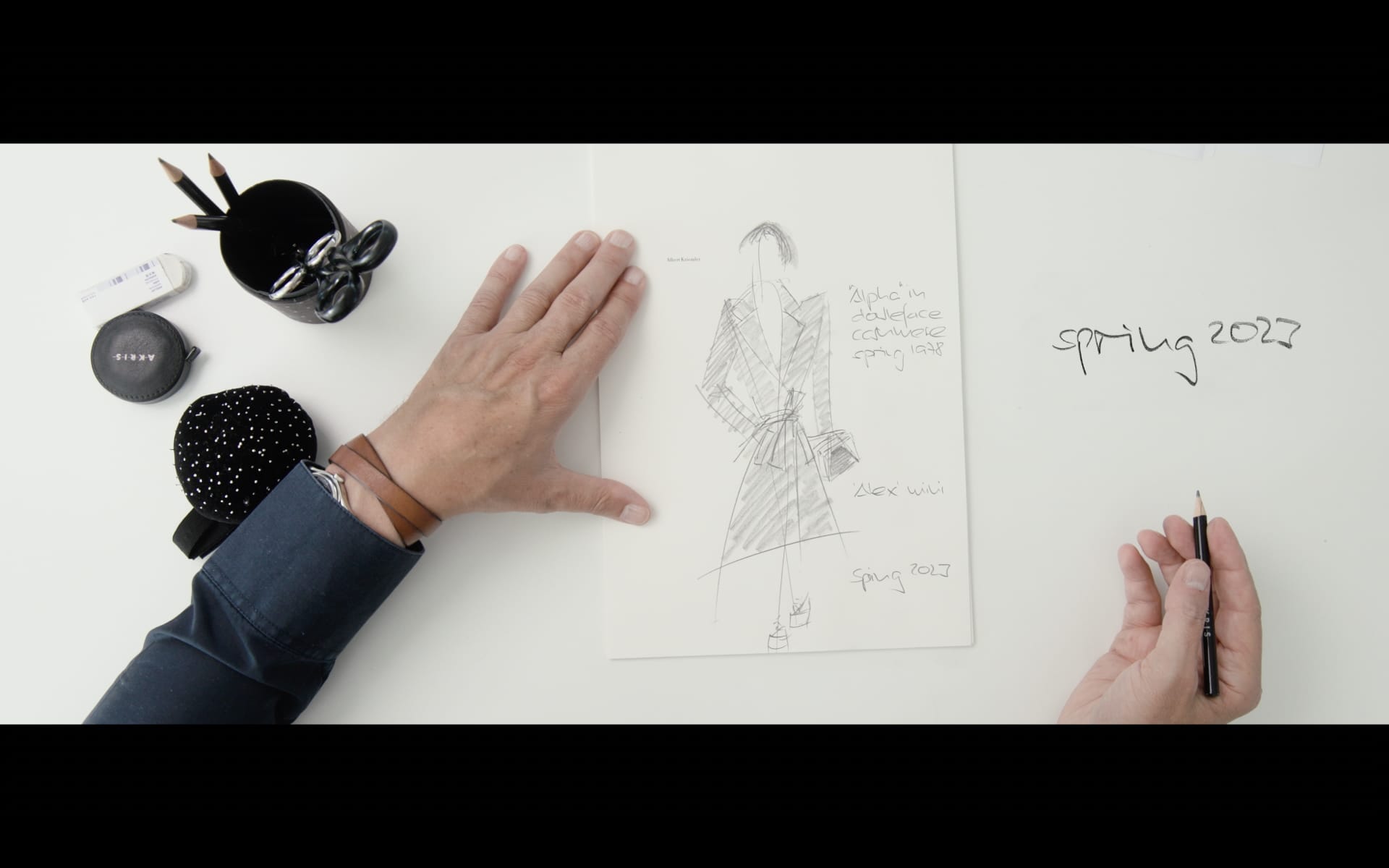
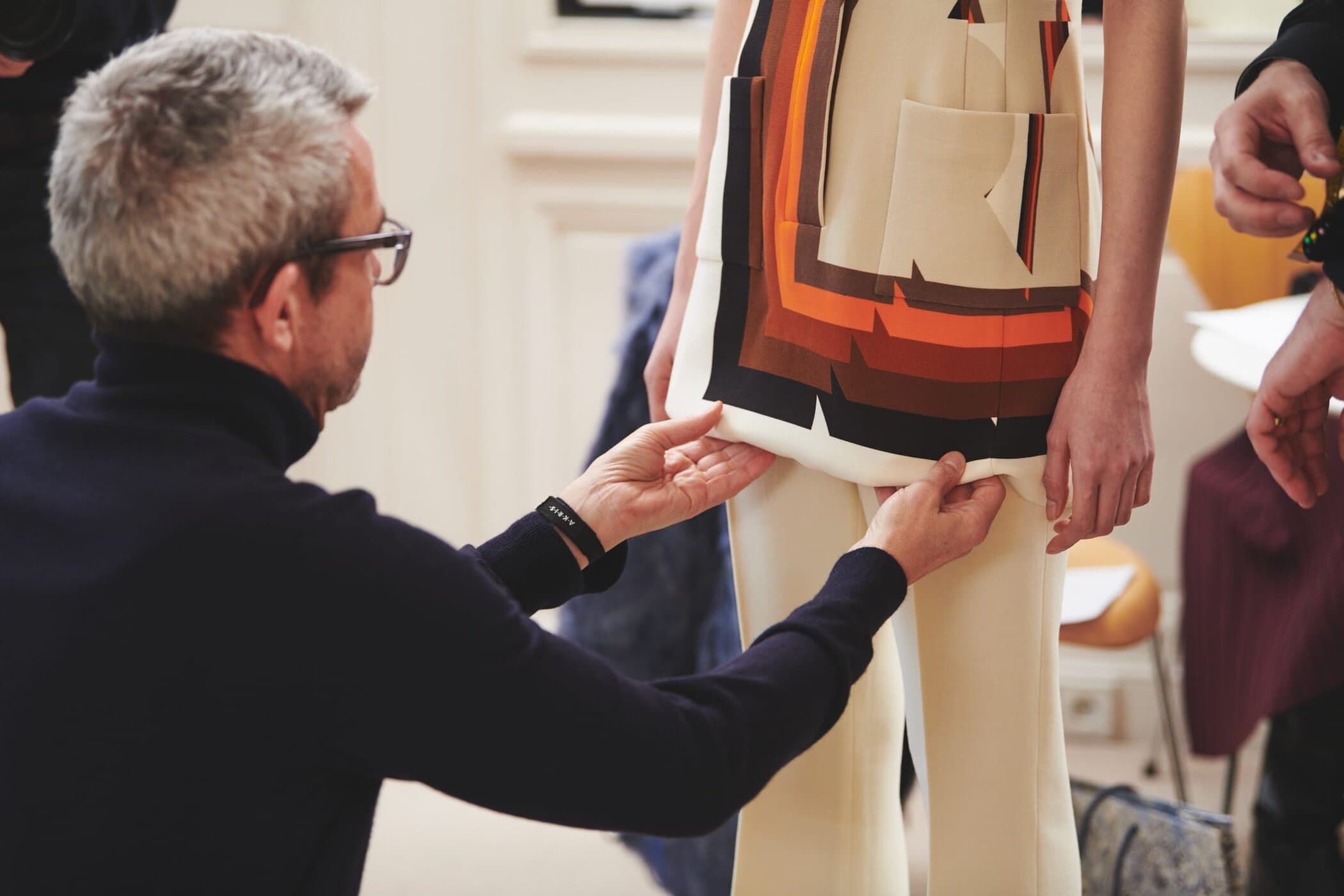
Now preparing for festival premieres and navigating the challenges of marketing documentaries amid changing audience habits, Holzemer remains modest yet optimistic about the film’s reception. His filmmaking ethos—rooted in truth, respect, and careful observation—promises to resonate profoundly with audiences seeking authenticity.
Perhaps Holzemer’s greatest triumph in AKRIS – Fashion With a Heritage is illuminating the quiet brilliance of Albert Kriemler and his atelier, demystifying fashion without diminishing its artfulness. It’s a film that celebrates humility, humanity, and heritage within an industry often defined by excess.
As Holzemer aptly reflects, “Life is too short to spend years with people who lack soul. Akris is about soul.”
